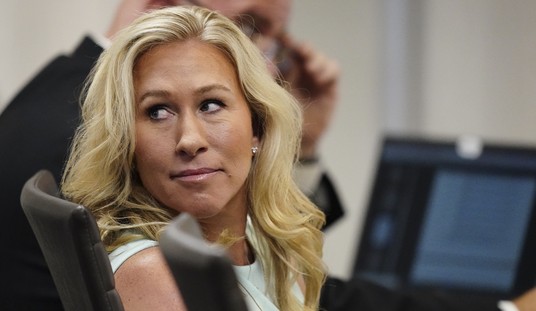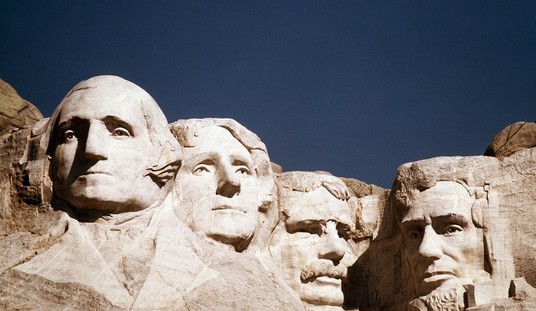The midterms are over, and now we can relax for a few months about electoral analysis and just focus on legislation. Yeah, riiiiiight. The analyses of 2016 began earlier this year, mainly focusing on Hillary Clinton and the Inevitable Coronation Tour II: The Revenge. Can she pull together the coalition that elected Barack Obama twice? Charlie Cook sounds skeptical, and he should be:
On every level, the 2008 Obama campaign outgunned the Clinton folks, but not just on the strategic, mechanical, and technological sides of the business. In 2008, many top operatives in the Clinton campaign seemed to be more preoccupied with screwing over their rivals within the campaign than with electing their candidate. At the 2008 quadrennial postelection conference at Harvard University’s Institute of Politics, the operatives attending from the Clinton and McCain campaigns marveled at a panel of top Obama campaign officials talking about their regular conference calls as an opportunity for the team to air and discuss their challenges. The Obama advisers said they knew that whatever they said on the strategy calls would not be leaked to the press nor used as ammunition against each other down the road. There was a sense of loyalty up and down the ladder in the Obama campaign, while the Clinton and McCain campaigns seemed to be marked by vicious inward-aimed firing squads.
Just in the past week, we have already seen that kind of infighting beginning anew, with emails leaked to make one potential campaign manager look bad. Clinton’s backers had hoped that this time would be different.
There is no question that Clinton, who just turned 67, will have to run a campaign more relevant to the future than the past. The youngest voters in 2016 would have been just 2 years old when Bill Clinton left office. Can Hillary Clinton count generating the same kind energy and excitement that accompanied the first minority presidential nominee—this time, for the first female nominee? Do young women identify themselves along gender lines and with Clinton—even if they don’t see themselves as victims of discrimination? Can they rally behind her, or do they see her as part of the political status quo, a fixture of American politics for as long as they can remember?
Cook wonders whether that could be balanced out by Clinton’s standing as an eminence grise in the Democratic Party:
One strength that Clinton will likely bring to the table is that she is widely seen as a grown up, a seasoned veteran; a stark contrast with Obama’s limited legislative and management experience as a one-term U.S. senator and law school professor. The fact is, she may be more acceptable as a candidate than she was eight years ago because of her additional layer of experience over other potential candidates.
We’ll get back to that in a moment. On the question of reinvigorating the Obama coalition, Chris Cillizza is also skeptical:
“Where I think Secretary Clinton has more appeal than any other Democrat looking at running is that with white working-class voters, she does have a connection,” Stewart told Scott. “I think she’s best positioned to open those states.” As evidence, Stewart cited Clinton’s success in the 2008 primary process in states such as Ohio and Pennsylvania. …
That was a very long time ago. And even in the past six years, Arkansas has moved heavily away from Democrats at the federal level. In 2008, both U.S. senators from Arkansas were Democrats, as were three of its four House members. Following the 2014 elections, all six are Republicans. ALL SIX. President Obama won just 37 percent of the vote in the state in the 2012 general election after watching someone named John Wolfe win 42 percent of the vote in the Democratic presidential primary against him.
Would Hillary Clinton do better than that? Yes. But the idea that the Arkansas that helped push Bill Clinton into the national spotlight has anything in common, politically speaking, with the Arkansas of 2014 is a fallacy. As for the idea that Obama’s race was the fundamental reason for his poor showing among white working-class voters, here are two words for you: Mark Pryor. As in, the two term incumbent senator — and son of a former governor and senator in the state — who just lost badly in his bid for reelection. Pryor took just 31 percent among white voters and won an even more meager 29 percent among whites without a college education.
Bear in mind that the Clintons campaigned hard for Mark Pryor, and he lost to Tom Cotton — by seventeen points. Democrats got scorched in Georgia despite running two well-regarded descendants of political royalty in their statewide elections, Jason Carter (Jimmy’s grandson) and Michelle Nunn (Sam’s daughter) as centrists. Kay Hagan couldn’t withstand Thom Tillis in North Carolina, a state that had been trending Democratic. Missouri and Indiana are becoming equally formidable as Republican strongholds, and Pennsylvania Democrats lost everything but the gubernatorial race in 2014.
So the Clintons don’t have the draw that they used to have a quarter-century ago in this region, or likely anywhere else. Cook might think of her as the “adult” in the Democratic field, but all that makes Hillary is the John McCain of the next cycle — in more ways than one, as I argue in my column for The Week:
Largely on the basis of his memoirs and a blockbuster speech at the 2004 Democratic National Convention, Obama offered a change from the normal political cycles. He got people who normally sat on the sidelines interested in the electoral process. His team proved superior at identifying Democratic primary voters and getting them to the polls. The freshman senator found new donors and new activists to outperform even the Clinton machine, overturning all assumptions about the composition of the electorate as Obama inspired a youth movement.
He outfought the Clintons to the end, and wound up trouncing John McCain in the general election. Four years later, Obama hung onto enough of those voters to see “the Obama coalition” triumph one more time.
The problem for Hillary Clinton is just that point. Without Obama at the top of the ticket, even in the reduced-inspiration mode of 2012, that coalition is unlikely to emerge a third time. Whatever other qualities she will bring to a presidential campaign, neither novelty nor outsider populism will be among them. The Clintons are a known commodity; by the time the 2016 elections arrive, they will have been part of the Washington, D.C., scene for almost a quarter-century. …
Obama transformed the electorate by being a transformational candidate, at least in promise and theory. He also had the wind at his back with the economic collapse in late 2008 and general fatigue with Bush and Republicans. The latter has reversed, which means that any Democrat would have a difficult time inspiring the Obama coalition back into force, let alone an establishment figure (and an Obama administration official) like Hillary Clinton.
She looks less like Barack Obama in this scenario than she resembles John McCain. She would be running on a damaged party brand, representing continuity rather than change — a symptom of the problems of Washington rather than their cure.
Don’t forget that Obama got five million fewer votes in the 2012 election, too. That coalition was already dissipating under Obama’s tenure. Hillary isn’t the kind of transformational candidate that Obama was, or more accurately was perceived to be. Just as continuity with the Bush administration turned voters off from McCain in 2008, continuity with a deeply unpopular administration in 2016 won’t be a winning formula. Democrats had better hope that someone among their own ranks derails the coronation again, or a fresh Republican face will do it for them.







Join the conversation as a VIP Member